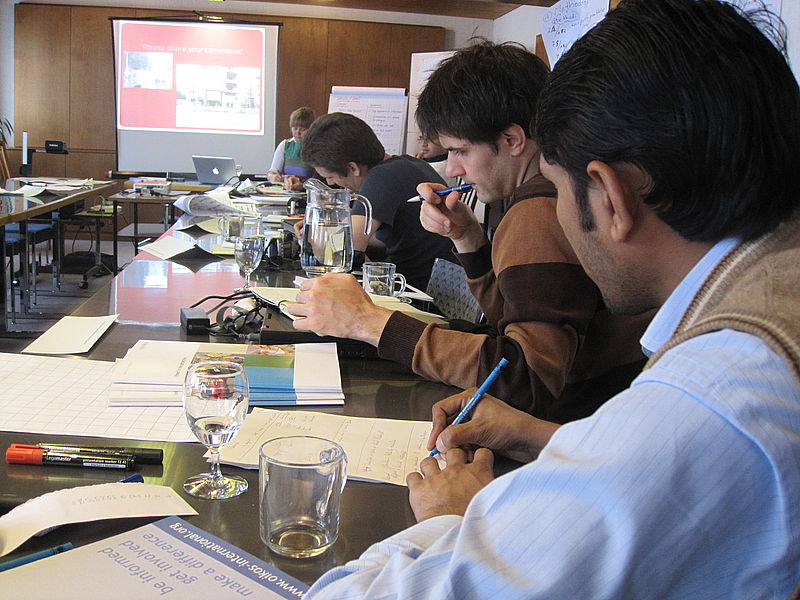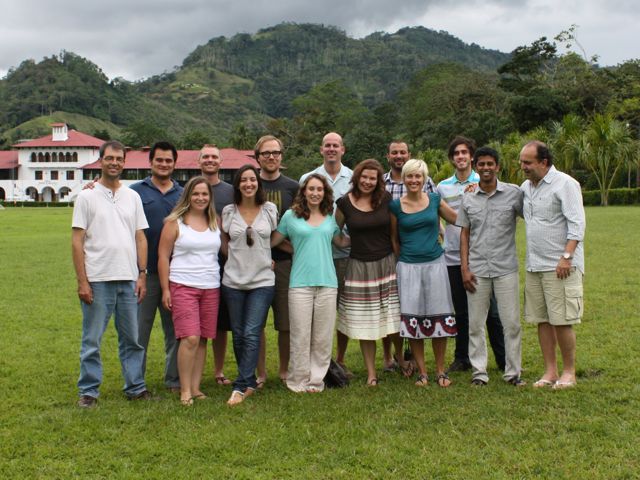Why Nairobi is the Stage for the 4th-Annual oikos UNDP Academy
There must be a good reason for doctoral candidates and professors from the world’s most renowned research schools to stumble across each other in the ‘fragmented city of Nairobi’ to meet for a week in August. Experts familiar with the groundbreaking mobile paying system M-Pesa and Kenya’s innovation ecosystem know why “Kenyans do it better” and would argue even the so-called ‘developed world’ needs to learn from how Kenyans do business.
All of which is why Kenya’s capital city of Nairobi is a good fit for the annual oikos UNDP academy. Since its inauguration in Switzerland in 2009, the academy has leapfrogged from Costa Rica, to India, and now turns toward Nairobi, Kenya where it will be hosted from Aug. 12-17 by the Strathmore Business School in Nairobi
The 15 scholars participating in the 2012 Academy come from universities on four continents, including the University of Nairobi, Kenya; Lagos Business School, Nigeria; Oxford’s Said Business School, United Kingdom; Moscow State Institute of International Relations, Russia; and Northwestern’s Kellogg School of Management, United States. Research topics include indigenous entrepreneurship, empowering women, social networks in the informal labor market, and technological adaptation strategies of the poor. The faculty and young scholars will take a fieldtrip to meet the CEOs of Art Cafe, Nakumatt and Kenyan/Diaspora Business to see firsthand some of Kenya’s most successful business models and how they capitalize on the emerging needs of the Kenyan population. They will also meet with local entrepreneurs to discuss their success in Kenya’s burgeoning informal economy.
 Focusing on “Matching Culture and Markets for Inclusive Development,” the oikos UNDP Academy aims to analyze and reflect upon the practices of businesses and governments shaping moral markets that build on local capabilities, include marginalized groups and the environment, and create opportunities for sustainable development. This will be achieved through individual presentations, roundtable discussions, and interactive work sessions. Highlights include the fieldtrip exposing the scholars to the complexity of bottom and upscale markets, and the practitioner day that seeks to cover the practices to build the social impact investment industry in East Africa. Invited guests include national leader Mugu Kibati, director of Kenya’s Vision 20130 (2030) and leaders from the investment sector such as the Rockefeller Foundation, aureos Capital, and responsAbility. (Left: The 2009 oikos Academy in Switzerland).
Focusing on “Matching Culture and Markets for Inclusive Development,” the oikos UNDP Academy aims to analyze and reflect upon the practices of businesses and governments shaping moral markets that build on local capabilities, include marginalized groups and the environment, and create opportunities for sustainable development. This will be achieved through individual presentations, roundtable discussions, and interactive work sessions. Highlights include the fieldtrip exposing the scholars to the complexity of bottom and upscale markets, and the practitioner day that seeks to cover the practices to build the social impact investment industry in East Africa. Invited guests include national leader Mugu Kibati, director of Kenya’s Vision 20130 (2030) and leaders from the investment sector such as the Rockefeller Foundation, aureos Capital, and responsAbility. (Left: The 2009 oikos Academy in Switzerland).
The decade-long series of oikos young scholars academies provides doctoral students and post doctoral candidates a hierarchy-free learning environment. Sustainability-driven management and economics scholars share their research projects with fellow students and senior faculty from universities across the globe. Each year groups of handpicked scholars are chosen to participate in one of the five disciplinary academies taking place during the academic summer. Academies are disciplinary oriented and focus on entrepreneurship, finance, organization theory and sociology, economics, and inclusive markets and business. The latter academy in focus is in partnership with UNDP’s Growing Inclusive Markets Initiative. The oikos UNDP academy “seeks to help young academics to bring the realities at the bottom of the pyramid into mainstream academic discussions, and to build a network among promising young academics” advocated entrepreneur Martin Herrndorf, the academy’s initiator, in a Next Billion article two years ago.
The small session programs offer participants opportunities that large-scale conferences cannot. Participation is capped at 15 young scholars and between three and five academy faculty members. oikos’ decade of facilitator experience and the program’s intimate setting allows for non-hierarchical, in-depth discussion and feedback. Each participant is allotted 15 minutes to present her research. Following the presentation, feedback is offered by two peers and the faculty, along with 20-30 minutes of open discussion time. The small setting also allows for inclusive roundtable discussions, fieldtrips, and practitioner days.

How to follow the Action
Daily posts, podcasts, and interviews with young scholars and faculty will be found on the oikos Blog and periodically on Next Billion. Check out the posts and be sure to comment. You can follow the happenings on Twitter (@oikos_internat #devacademy) or join oikos on Facebook to add your thoughts on the topics that will be presented.
Asli Pelit, professional journalist and producer, has volunteered to shoot a series of small documentaries to increase the visibility of the young scholars, the very important topics reflected upon, and the way of doing research.
(Pictured right: The 2010 oikos Academy in Costa Rica).
- Categories
- Uncategorized
